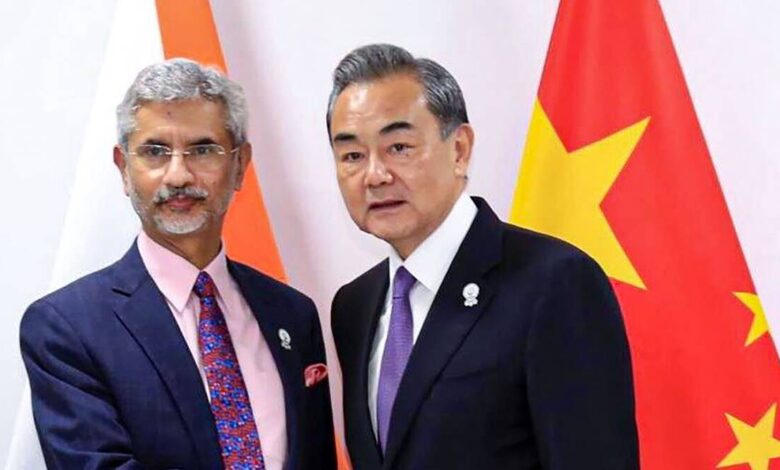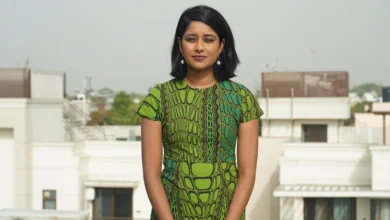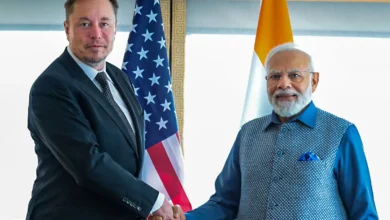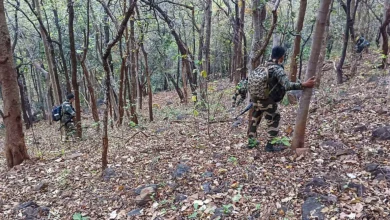Chinese Foreign Minister Wang Li meets External Affairs Minister Jaishankar

Two years into the tactical deadlock along the Line of Actual Control in Ladakh, External Affairs Minister S Jaishankar Friday told visiting Chinese State Councillor and Foreign Minister Wang Yi that respective relations have been “disturbed as a result of Chinese action since April 2020”.
The Chinese FM showed up in New Delhi on Thursday, the vital targets of Wang’s visit is to restart actual commitment and to welcome Prime Minister Narendra Modi to the BRICS meet which is facilitated by Beijing this year.
Before his India visit The Chinese FM went to the Organisation of Islamic Cooperation (OIC) meeting in Islamabad where he said, “On Kashmir, we have heard again today the calls of many of our Islamic friends. And China shares the same hope.”
Jaishankar said he raised the issue of Wang’s statement at the OIC conference in Islamabad which was criticised by the Indian government.
Jaishankar told Wang that China should follow “an independent policy in respect of India, and not allow its policies to be influenced by other countries and other relationships” — a reference to Pakistan.
These were the critically important points from the gathering between the two Foreign Ministers who have up to this point verbally expressed on the telephone over the most recent two years and have met each other threefold in two nations – yet not visited each other’s capitals. Wang last visited India in December 2019.
Wang additionally met National Security Advisor Ajit Doval who passed on a comparative message and focused on the requirement for complete withdrawal on the LAC to permit the reciprocal relationship to take its normal flow, sources said.
Underlining that continuation of the current circumstance isn’t in the common interest, Doval said the rebuilding of harmony and serenity will assist with building shared trust and establish an empowering climate for progress in relations, sources said.
Doval requested that Wang guarantee that the activities by China don’t violate the spirit of equal and mutual security. During their hour-long meeting, he called for working in a similar heading and settling remarkable issues as fast as could be expected.
According to Chinese state-run news agency Xinhua, Wang told Doval that “China and India should stick to their development paths and join hands to safeguard peace and stability both in the region and in the world”.
“He proposed a three-point approach to achieving that end. First, both sides should view bilateral relations with a long-term vision. Second, they should see each other’s development with a win-win mentality. Third, both countries should take part in the multilateral process with a cooperative posture,” Xinhua reported.
Jaishankar, who described his meeting with Wang as one with a “broad and substantive agenda in an open and candid manner”, said, “We discussed our bilateral relations that have been disturbed as a result of Chinese actions since April 2020.”
Jaishankar, who depicted his gathering with Wang as one with a “broad and substantive agenda in an open and candid manner”, said, “We discussed our bilateral relations that have been disturbed as a result of Chinese actions since April 2020.”
Giving a record of their gatherings in Moscow (September 2020) and Dushanbe (July and September 2021), as well as a few telephonic discussions, he said the focal point of these associations have “naturally been on the situation in our border areas”.
Reminding the Chinese minister of their decision, he said, “Our meeting had led to an understanding on disengagement and de-escalation. The challenge, of course, has been to implement it on the ground. We have had 15 rounds of talks between senior commanders and progress has been achieved on several friction points from the disengagement perspective. This needs to be taken forward since the completion of disengagement is necessary for discussions on de-escalation to take place. I would describe our current situation as a work in progress, obviously at a slower pace than desirable. And my discussions with FM Wang Yi today were aimed at expediting that process.”
“I was very honest, in my discussions with the Chinese Foreign Minister, especially in conveying our national sentiments on this issue. The frictions and tensions that arise from China’s deployments since April 2020 cannot be reconciled with a normal relationship between two neighbours… Wang Yi spoke about China’s desire for a return to normalcy while also referring to the larger significance of our ties. I was equally forthcoming that India wants a stable and predictable relationship. But the restoration of normalcy will require a restoration of peace and tranquillity. If we are both committed to improving our ties, then this commitment must find full expression in ongoing disengagement talks.”
Responding to questions, he said, “Now, the point is that, so long as there are very large deployments in the border areas, which are violative of the 1993 and 1996 agreements, clearly the border area situation is not normal. So, the main point is we have a situation where peace and tranquillity in the border areas have been disturbed. So, the situation there is not normal. The situation there is not normal, if peace and tranquillity is the… basis of how we are going forward, then, obviously, that is also disturbed. So, the answer in that sense is, if you ask me, is our relationship normal today? My answer to you is no, it is not. And it cannot be normal if the situation in the border areas is abnormal. And surely the presence of a large number of troops there, in contravention of agreements, is abnormality.”
He said the event gave a chance to trade sees on significant worldwide issues, including Afghanistan and Ukraine.
On Ukraine, Jaishankar said, “We discussed our respective approaches and perspectives, but agreed that diplomacy and dialogue must be the priority.”
He said he too “took up strongly the predicament of Indian students studying in China, who have not been allowed to return citing Covid restrictions”.
“We hope that China will take a non-discriminatory approach since it involves the future of so many young people. Minister Wang Yi assured me that he would speak to the relevant authorities on his return on this matter. He also recognised the particular concerns that medical students have in this difficult situation,” he said.



